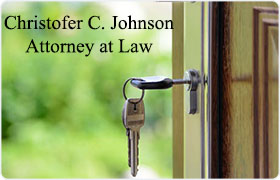 Smyrna Foreclosure Lawyers, Delaware
Smyrna Foreclosure Lawyers, Delaware
Sponsored Law Firm
-
 x
x

Click For More Info:
-
Christofer C. Johnson, Esq.
1007 N Orange St 4th Floor Wilmington, DE 19801» view mapReal Estate, Foreclosure, Landlord-Tenant Get The Support You Need For Your Case
Christofer C. Johnson, Esq. has a track record of successful case outcomes and provides legal counsel for a reasonable price.
800-941-4370
Not enough matches for Smyrna Foreclosure lawyer.
Below are all Smyrna Real Estate lawyers.
Lawyers
1-3 of 3 matches
Condominiums, Commercial Real Estate, Commercial Leasing, Defamation & Slander
Premises Liability, Personal Injury, Car Accident, Animal Bite
Business, Divorce & Family Law, Estate, Lawsuit & Dispute, Real Estate



 Christofer Johnson Wilmington, DE
Christofer Johnson Wilmington, DE AboutChristofer C. Johnson, Esq.
AboutChristofer C. Johnson, Esq. Practice AreasExpertise
Practice AreasExpertise